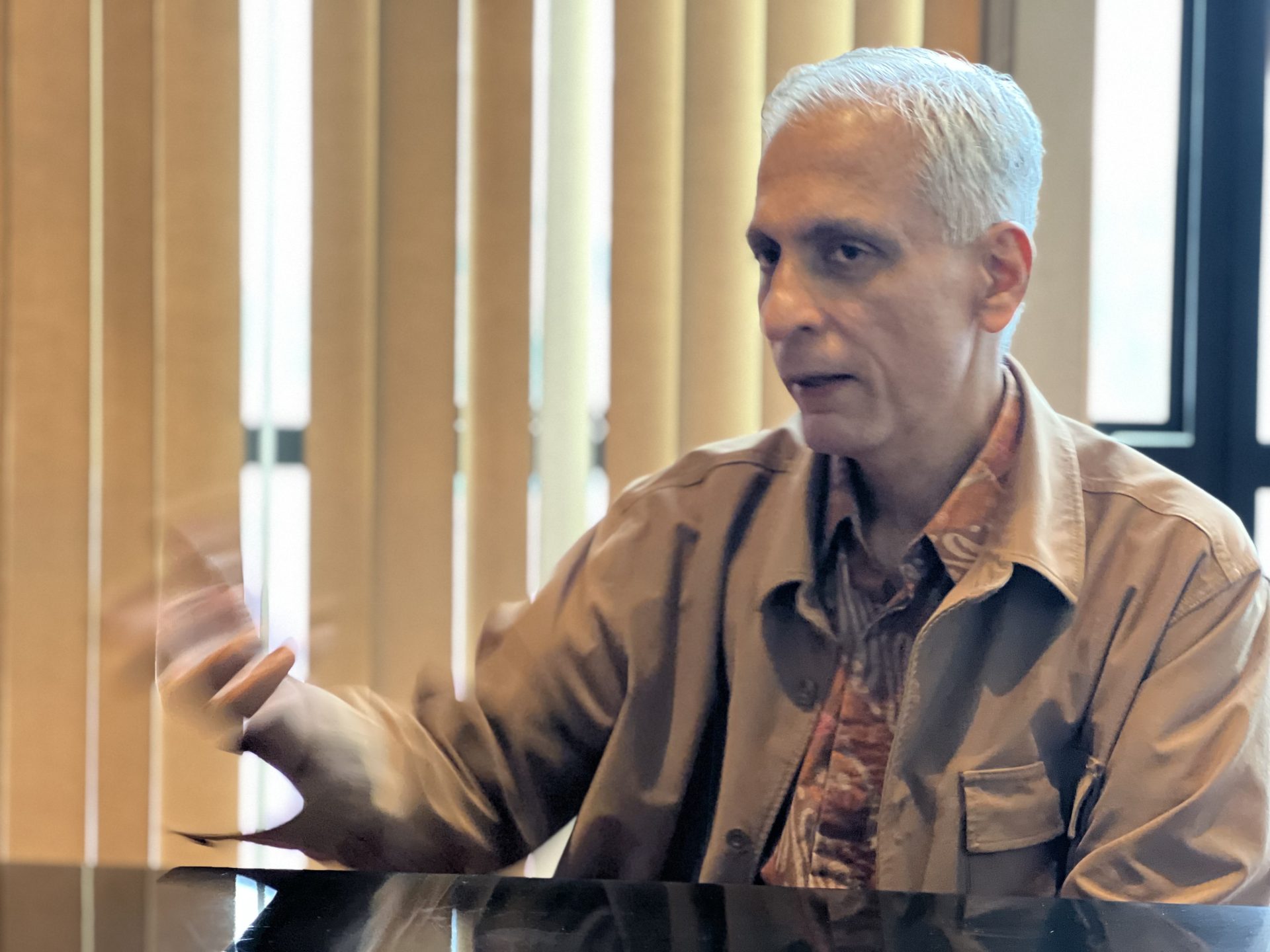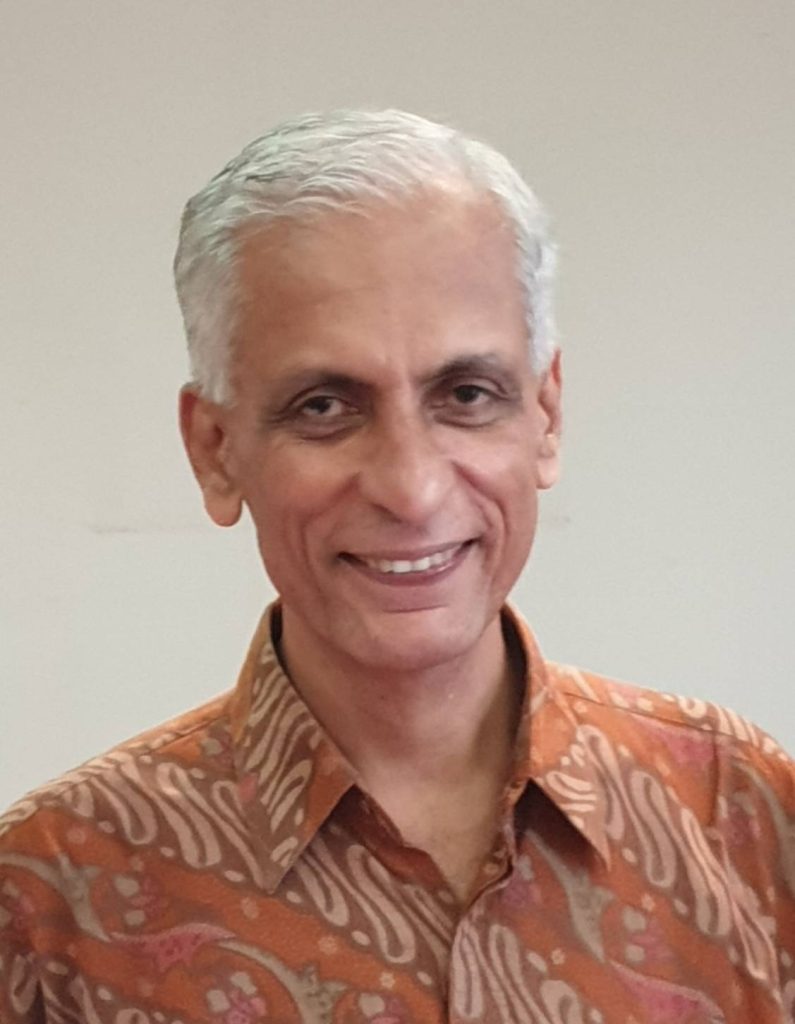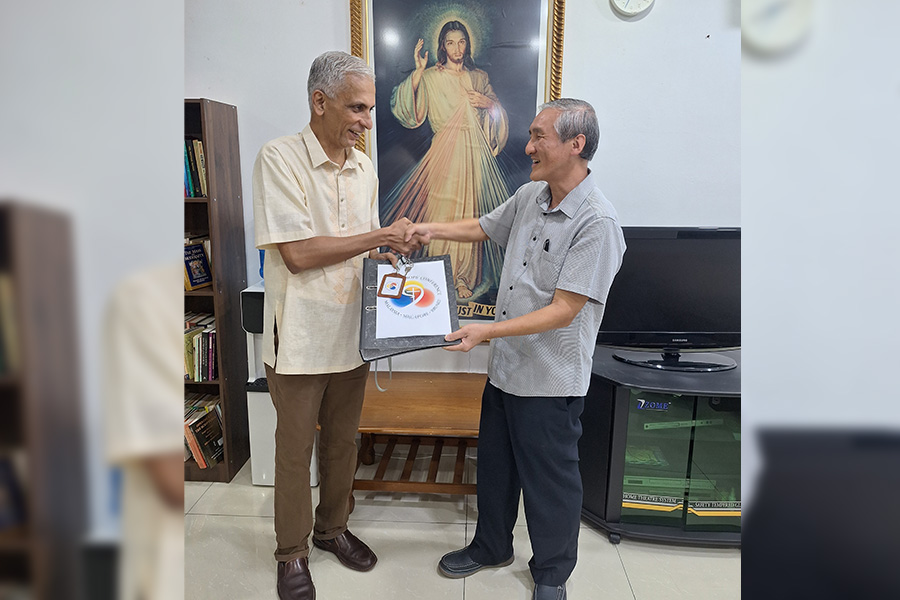Charles Bertille, one of the rare laypersons to serve as executive secretary of the Catholic Bishops’ Conference of Malaysia-Singapore-Brunei (CBCMSB), welcomed his successor as his 5-year term ended.
“I am delighted that the Conference has reaffirmed its choice of a layperson as the next executive secretary,” said Bertille, who will be replaced by Mr. Richard Chia.
He expressed gratitude to the bishops’ conference “for their trust in me as a layperson” and vowed to “continue to serve the Church in the region as a part-time consultant”.
Bertille shared with LiCAS.news his reflections on the role of the laity in the Catholic Church.
Q: What was the job description?
A: Well, like most mission tasks I have taken on, it came with very few lines. I learned and developed the job description as I went along. The Executive Secretary is expected to play an active supporting role in helping to fulfill the mission of the Catholic Bishops Conference. It’s a discreet, background role. And so, the person is expected to maintain confidentiality, uphold integrity, and required protocols. At times, storms can come along – so personal human maturity is strongly needed.
Alongside that, I would add, that a deep personal love for the Church and an experiential understanding of the spirit of being Church is vital in fulfilling this executive function. It’s not just corporate style management – although I have studied management & communications and worked in the corporate sector. These are helpful, maybe even necessary, but the essence is the spirit of being with the church daily. Having a background in pastoral or theological studies is an added benefit as you can understand better the matters being discussed.
Q: Why did you say yes to the job in the first place?
A: Well, the love for the church, and the desire to be of service to her. I enjoy serving … this is my 31st year in full-time ministry work .. and Beatrice and I have been married for 31 years too. That says something about our vocation as lay persons and the meaning of our marriage.
Secondly, the task or job was also a homecoming for me after being away from Malaysia serving in various mission work abroad for 18 years.
Q: What did you tell yourself in the early days of work to keep yourself motivated?
A: “Carry on …” – Often times as Executive Secretary I had to work alone. Though I work on many matters and documents for the bishops and serve all dioceses, I am not part of any pastoral office or teams. Sometimes this has been tough. And unlike a priest, we as a laity do not celebrate the sacraments in the community. So, the community dimension of faith in the role that I had undertaken can be limited.
Q: What are you most proud of?
A: There was a moment during the FABC 50 assembly in Bangkok when some bishops asked of me and I introduced myself as a lay person and serving as the executive secretary. I could see it was like a shock, they could not believe it. In fact, they went to check with our Malaysian bishops. And one or two came back to double-check with me again. It was funny … and I was grateful that I could bear witness on that occasion to what a lay person could be in the church if we are given the opportunity.
The other is having simply served these past 5 years, giving my best and keeping the trust and confidence of the bishops.
I think I have organized the secretariat a little more, proposed a restructuring of the secretariat and commissions, set up the archives-documentation system, expanded the network of the Conference (from 150 email contacts to 700 plus), developed the identity and visibility of the Conference through the logo, website, regular news articles, set-up Caritas Malaysia for the Conference, coordinated the entire Synod process, the assembly, reports, and communications, supported the FABC 50 assembly, integrated the work the Conference & dioceses have been doing on Safeguarding of minors, and many other topics. It’s been very rich.
Q: Areas for improvement – care to list any?
A: The entire process of becoming a Synodal church will be vital for the future of the church including the Conference. To give one example, we are all so used to working in silos in our ministries; or decision-making only centered on one person and office, that we often overlook the ‘body or communion’ dimension to all these. For the growth of the church and its mission, all these would need to be revisited. And I am confident the Synod process will reflect upon all these.
Q: What are the advantages and disadvantages that you have of being a layperson in the role?
I would say accessibility – I am one like anyone else, living in a family and neighborhood, aware of peoples’ life realities and situations … accessible to all and listening to all. The bishops gave me permission to speak up or contribute to the deliberations when needed. These were moments where I was able to bring a perspective or raise a question from these life situations.
Then at times, some lay persons or clergy may not give you the same response because you are lay and not clergy. I tell myself then this is part of being church and we are all on a journey of salvation.
Q: What three words would you choose to describe where you are now – as you move onto the next chapter of your life?
A: Transition … Called to stretch my wings or discover the deeper charisms within … and gratitude.
Q: What’s your parting message to the one who will follow in your footsteps?
A: I only wish him the best, and I will continue to support him in any way he needs. I know he has good capacity, and he will and can innovate upon what has been done so far. This is how the church grows when we build upon the contribution of one another.
Q: For a lay person, who has been serving the “Church of the People of God” and has been part of the institutional “Church,” what do you think is the real identity of the Laity?
A: Our identity comes from our baptism in Christ – we are all sons and daughters of the Father, co-heirs with Christ. So, we all share in Christ this common baptismal identity to be the People of God. Our states of life and vocation may differ but we are called to serve; and in the eyes of God, we are all his children and equal in dignity.
Q: Pope Francis’ Synod on Synodality is almost, if not parallel, to the concept of “Co-responsibility in the Church,” according to some church leaders. How can the Church in Asia fully practice co-responsibility? Where is the laity in this journey?
A: Cardinal Tagle recently in his talk to the church leadership in the States, said that the Synod and talks of co-responsibility can be threatening to some of the ordained leadership because the clergy themselves may not be clear of their own identity. The laity is then seen as a threat rather than as part of the family, and co-responsible for the family. So, they (the laity) are kept away or kept down.
On the other hand, if we look at laity, Catholics young and elderly, how they are involved in prayer groups, lay movements, NGOs, UN, corporate or state offices – and see how they are contributing so passionately and effectively to improve the lives of so many others – then you realize truly the Spirit is at work across all boundaries, and you see the charisms glowing in these persons. As the Asian bishops or FABC said long ago, God has not failed to give His church all the charisms it needs to respond to the mission needs, but the pastors have to see and call forth these charisms in the people.
Q: Since Vatican II, reforms have been introduced to the entire Catholic Church, including the empowerment of the laity – not just mere collaborators. Is the Church ready to entrust greater responsibilities to the laity? Are we (the laity) prepared to engage in internal contradictions and class struggles within the Church?
A: I really do not think for one moment it is a class struggle – there are no classes, neither Jews or Greek, male or female, we are all one in Christ says St. Paul.
Yes, many lay persons have been struggling for many years – and thanks to their struggles, prayers, and suffering … the church is where she is today – ready to discuss synodality. Their sacrifice is not wasted.
And yes, such a struggle may lead us to face internal contradictions. As Pope Benedict once said, and Pope Francis has repeated it many times, do not be afraid of contradictions or to speak up. Of course, it can be intimidating to speak up to authority, and your ‘career’ in the church may be stopped but only temporarily. Goodness and truth cannot be kept down. God will open other doors.
We as laity too must make an effort – to grow in faith, to understand the teachings of the church, and most of all, to embody human maturity in our interactions. If we play games or politics like anyone else, how are we a witness to Christ?









